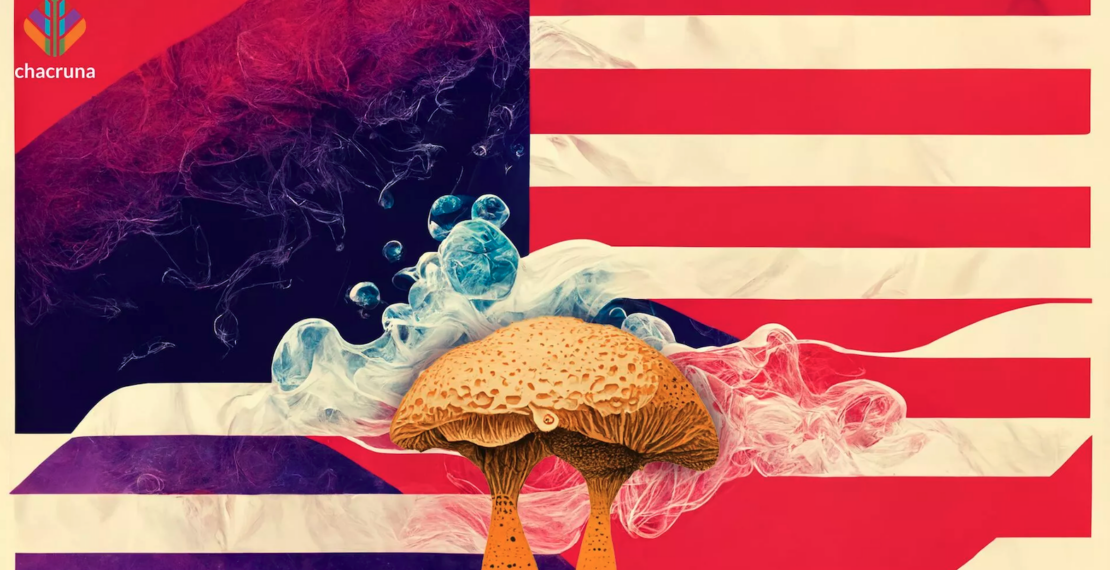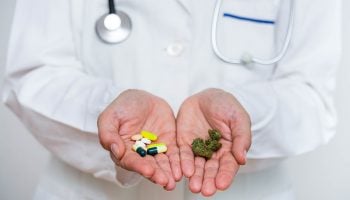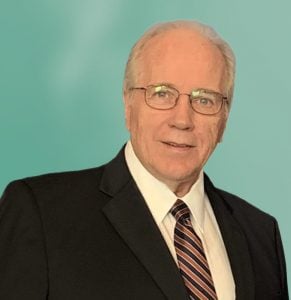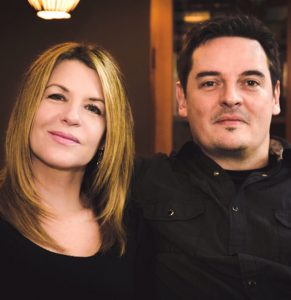Photo credit: Chacruna Institute Disclaimer: Psychedelics are largely illegal substances, and we do not encourage or condone their use where it is against the law. However, we accept that illegal drug use occurs and believe that offering responsible harm reduction information is imperative to keeping people safe. For that reason, this article is designed to enhance the safety of those who decide to work with psychedelics.
Psychedelics research continues evolving with promising new studies on MDMA for severe PTSD and psilocybin for depression. In Congress, senators introduced a Breakthrough Therapies Act to make it easier for scientists to study Schedule I drugs. Additionally, two US House members launched a bipartisan psychedelics caucus to advocate for expanded clinical research and federal funding. In Colorado, lawmakers took the next step toward establishing the state’s legal market for psilocybin. Let’s review the top psychedelic news stories for November 2022.
Senators Introduce Bill to Make Researching Psychedelic Drugs Easier
In a bipartisan effort, Senators Cory Booker (D-NJ) and Rand Paul (R-KY) filed the “Breakthrough Therapies Act” for Congressional approval. The bill aims to streamline the registration process and remove barriers to researching scheduled drugs that demonstrate substantial improvements over currently available treatments. Psychedelics’ current DEA classification creates unreasonably burdensome federal red tape that prevents researchers from studying their medical value and potential. Booker, Paul, and many in Congress believe these classifications are outdated. Under the bill:
- The DEA would allow researchers with existing Schedule I or II registrations to study other Schedule I drugs.
- Scientists without registration could provide information about their research project and receive an approval within 45 days.
- Multiple researchers at one institution could participate under a single registration.
- Studies taking place over multiple locations would only require one overall registration.
The act now goes to Congress for approval. The growing interest in psychedelics policy has advocates optimistic that the bill can pass.
Milestone Study on MDMA for PTSD Is Now Complete
MAPS, a public benefit corporation (PBC) dedicated to developing and commercializing psychedelic medicines, reached a critical milestone in its 36-year campaign to obtain FDA approval for the therapeutic use of MDMA, when the final participant in the second of two Phase 3 studies recently completed their final office visit. Results from the second Phase 3 study should be available in the first quarter of 2023. MAPS intends to submit them to the FDA next year to develop new MDMA-based drugs and treatments. The company says completing its second study brings millions of Americans with PTSD one step closer to receiving MDMA-assisted therapy.
Grow 1 Year's Worth of Microdoses in Just 6 Weeks
Third Wave partnered with top mycologists to create the world’s easiest and best mushroom growing program (kit, course, and expert support).
- Pre-sterilized and sealed
(ready to use out of the box) - Step-by-step video and text course
- Access to growing expert in community
- Make your first harvest in 4-6 weeks
- Average yield is 1 - 4 ounces (28-108g)
- Fits in a drawer or closet
- Enter info for Third Wave discounts:

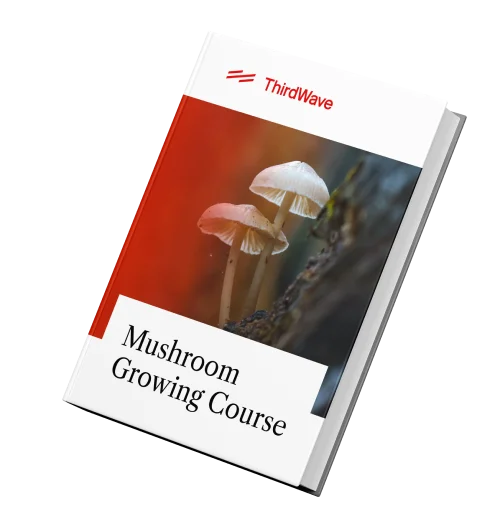
Grow 1 Year's Worth of Microdoses in Just 6 Weeks
Third Wave partnered with top mycologists to create the world’s easiest and best mushroom growing program (kit, course, and expert support).
- Pre-sterilized and sealed
(ready to use out of the box) - Step-by-step video and text course
- Access to experts in community
- Make your first harvest in 4-6 weeks
- Average yield is 1 - 4 ounces (28-108g)
- Fits in a drawer or closet
- Enter info for Third Wave discounts
House Reps Form Psychedelics Caucus to Expand Research
Psychedelics, including psilocybin and MDMA, show great promise as potential treatments for various mental health conditions, including anxiety, depression, addiction, and post-traumatic stress disorder (PTSD). Still, properly vetting these treatments requires overcoming many hurdles because of the drugs’ Schedule I and II status. Fortunately, a new bipartisan caucus will soon advocate for expanded medical research. Two US House of Representatives lawmakers, Democrat Lou Correa and Republican Jack Bergman, recently launched the bipartisan Congressional Psychedelics Advancing Clinical Treatments (PACT) Caucus. Bergman, a retired general, has seen the destruction PTSD causes veterans and their families firsthand and believes Congress needs to find better ways to “alleviate the national mental health crisis through psychedelic science and research.” Although the caucus won’t push decriminalization, legalization, or rescheduling measures, it plans to significantly expand congressionally funded clinical research and spread awareness of psychedelics’ therapeutic value.
Study Shows Psilocybin Has Potential to Treat Depression
In a new study, psilocybin, the active psychedelic ingredient in magic mushrooms, significantly helped those suffering from treatment-resistant depression. The peer-reviewed, double-blind trial published in the New England Journal of Medicine studied the effects of psilocybin in 25 mg, 10 mg, and 1 mg doses, combined with psychological support, in 233 participants. After three weeks, psilocybin at a single dose of 25 mg, but not 10 mg, reduced depression scores significantly more than a 1 mg dose. However, some adverse effects, including headache, nausea, and dizziness, did occur in many patients. This is the latest study supporting psilocybin-assisted therapy as a viable method to reduce depression symptoms in patients who do not respond to other medications. The research community would benefit greatly from larger and longer clinical trials in the future.
Grow 1 Year's Worth of Microdoses in Just 6 Weeks
Third Wave partnered with top mycologists to create the world’s easiest and best mushroom growing program (kit, course, and expert support).
- Pre-sterilized and sealed
(ready to use out of the box) - Step-by-step video and text course
- Access to growing expert in community
- Make your first harvest in 4-6 weeks
- Average yield is 1 - 4 ounces (28-108g)
- Fits in a drawer or closet
- Enter info for Third Wave discounts:


Grow 1 Year's Worth of Microdoses in Just 6 Weeks
Third Wave partnered with top mycologists to create the world’s easiest and best mushroom growing program (kit, course, and expert support).
- Pre-sterilized and sealed
(ready to use out of the box) - Step-by-step video and text course
- Access to experts in community
- Make your first harvest in 4-6 weeks
- Average yield is 1 - 4 ounces (28-108g)
- Fits in a drawer or closet
- Enter info for Third Wave discounts
Colorado Moves Toward Establishing a Legal Psychedelic Mushroom Market
Coloradans took the first step toward legalizing psilocybin and psilocin—the psychoactive compounds found in many psychedelic mushroom species—when they voted last month in favor of the Natural Medicine Health Act (Proposition 122), which decriminalized personal use. Now the state has announced the next step toward establishing a regulated psychedelic market: developing an advisory board to establish rules for licensed “healing centers” where people can access psychedelic mushrooms for therapeutic purposes. The advisory board will include 15 members, who will make annual recommendations regarding public health approaches. Those involved in passing Proposition 122 say their goal is to fill the board with experts who can maximize safety and promote equitable access to substances that potentially benefit everyone. At least seven board members should have experience in natural medicine therapy and research, emergency medical services, health care insurance and policy, or harm reduction. The remaining eight members should understand religious and traditional indigenous uses of natural medicines, issues impacting veterans, disparities in health care access, or criminal justice reform in Colorado. Coloradans can start applying for healing center licenses in September 2024. Based on the advisory board’s recommendations, most experts believe these centers will open their doors in the summer of 2025.
November marked another memorable month toward progressing the psychedelic mission. We look forward to continuously updating you with the latest, high-quality news surrounding plant medicines, clinical developments, education, and more. Did you enjoy this article? Let us know! See something missing? We’ll consider adding it. Contact us today.

